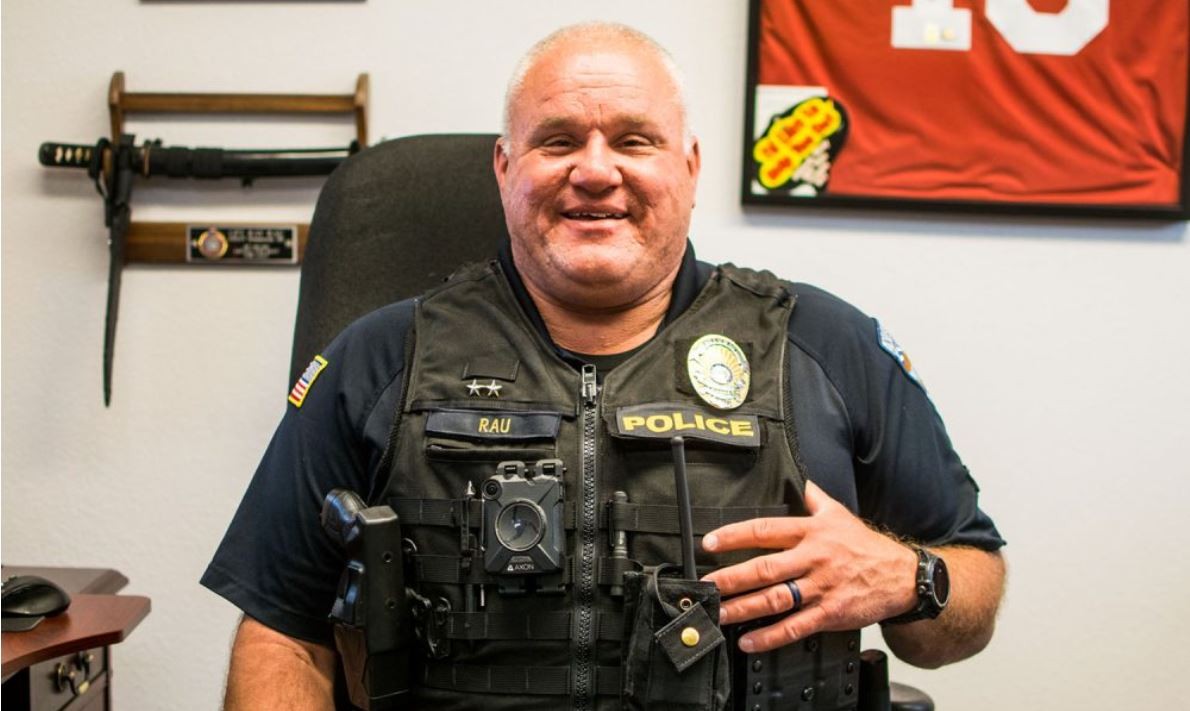- Home
-
News | Services
- CertificationEvidence Training & Certification Programs
- AccreditationAccreditation Guide & Resources
- Evidence News Top National & Global News
- NewsletterMonthly IAPE Email Newsletter
- Sponsors/AdvertisersAdvertisers & advertising options
- Job BoardView & Submit Job Listings
- Evidence Associations State Affiliates & Organizations
-
 ResourcesBooks | Manuals | Guides
ResourcesBooks | Manuals | Guides
- IAPE Forms & Professional StandardsForms | Standards Sample
- Manuals & GuidesSubmission | Packaging | & More
- DNA ResourcesJournal Articles & Law Enforcement Links
- Other ResourcesAudits | Digital | Best Practices
- Fentanyl ResourcesAudits | Digital | Best Practices
- Admin KillAdmin Approval to Purge Docs
- IAPE GalleryBest Practices From Agencies
- Fentanyl Resources & Guides
- Evidence by the book
- Evidence LogOnline IAPE Magazine
- Classes
- Membership
- About
- StoreIAPE Krapola
-
 Video ClassStudent Login
Video ClassStudent Login
NEW LAW ON STORING EVIDENCE PUTS STATE IN PACK RAT MODE
1841 Hits
The Gazette (Colorado Springs, Colorado)
BYLINE: PAM ZUBECK,
El Paso County, CO
A mandate that law enforcement agencies keep evidence that "may contain" DNA in felony crimes is creating a storage and tracking nightmare, local authorities say.
The state law, enacted this year, requires DNA evidence in serious crimes such as rape and murder be stored until the suspect or criminal dies.
That means law enforcement officials will have to track suspects and ex-cons, even when they move to other states, to determine when evidence can be destroyed.
It also means a woman raped in a vehicle might lose her car to evidence storage indefinitely rather than just a car seat, as in the past, El Paso County Sheriff Terry Maketa said.
The new law comes after Fort Collins resident Tim Masters' 1999 murder conviction was vacated last year when his DNA was not found on evidence of the crime.
Fourth Judicial District Attorney Dan May shares Maketa's concerns.
While he emphasized that prosecutors support DNA collection as "the best evidence you can get," the mandates are impractical and costly. Historically, evidence involving defendants who pleaded guilty was disposed of on a verbal motion in court.
Another problem is that the bill doesn't define the words "may contain DNA," and it doesn't specify human DNA, May said.
"If someone steals your car, and it's later recovered but we never solve (the case), we still have to hold it for the three-year statute of limitations because (the thief's) DNA might be on the steering wheel," May said.
His office hasn't held on to stolen vehicles as evidence because it's impractical for crimes that likely won't be solved, he said.
The recently adopted measure imposes a $2.50 surcharge on traffic offenses to fund DNA processing by the Colorado Bureau of Investigation. But costs of storing and tracking the evidence are "saddled on the local level," Maketa said.
El Paso County's five-year-old evidence building was thought to be adequate for 20 years. Now, Maketa said, it might fill up in five years.
"Cars and furniture. The bulky stuff, that's what kills you," he said.
Colorado Springs police Sgt. Steve Noblitt said it might not take five years to squeeze the city's evidence space.
"We'll make room and do what we got to do to comply," he said. "But our concerns are that maybe in two to three years we can see our storage area filling up because of this requirement. We have freezers that are filling up also."
Call the writer at 636-0238.
- - - - - - - - - - - - - - - - - - - - - - - - - - - - - - -
International Association for Property and Evidence
"Law Enforcement Serving the Needs of Law Enforcement"
www.IAPE.org
BYLINE: PAM ZUBECK,
El Paso County, CO
A mandate that law enforcement agencies keep evidence that "may contain" DNA in felony crimes is creating a storage and tracking nightmare, local authorities say.
The state law, enacted this year, requires DNA evidence in serious crimes such as rape and murder be stored until the suspect or criminal dies.
That means law enforcement officials will have to track suspects and ex-cons, even when they move to other states, to determine when evidence can be destroyed.
It also means a woman raped in a vehicle might lose her car to evidence storage indefinitely rather than just a car seat, as in the past, El Paso County Sheriff Terry Maketa said.
The new law comes after Fort Collins resident Tim Masters' 1999 murder conviction was vacated last year when his DNA was not found on evidence of the crime.
Fourth Judicial District Attorney Dan May shares Maketa's concerns.
While he emphasized that prosecutors support DNA collection as "the best evidence you can get," the mandates are impractical and costly. Historically, evidence involving defendants who pleaded guilty was disposed of on a verbal motion in court.
Another problem is that the bill doesn't define the words "may contain DNA," and it doesn't specify human DNA, May said.
"If someone steals your car, and it's later recovered but we never solve (the case), we still have to hold it for the three-year statute of limitations because (the thief's) DNA might be on the steering wheel," May said.
His office hasn't held on to stolen vehicles as evidence because it's impractical for crimes that likely won't be solved, he said.
The recently adopted measure imposes a $2.50 surcharge on traffic offenses to fund DNA processing by the Colorado Bureau of Investigation. But costs of storing and tracking the evidence are "saddled on the local level," Maketa said.
El Paso County's five-year-old evidence building was thought to be adequate for 20 years. Now, Maketa said, it might fill up in five years.
"Cars and furniture. The bulky stuff, that's what kills you," he said.
Colorado Springs police Sgt. Steve Noblitt said it might not take five years to squeeze the city's evidence space.
"We'll make room and do what we got to do to comply," he said. "But our concerns are that maybe in two to three years we can see our storage area filling up because of this requirement. We have freezers that are filling up also."
Call the writer at 636-0238.
- - - - - - - - - - - - - - - - - - - - - - - - - - - - - - -
International Association for Property and Evidence
"Law Enforcement Serving the Needs of Law Enforcement"
www.IAPE.org
How do you feel about this post?
Search IAPE
Blotter - Latest News
Another reason to conduct inventories!
Tip leads to the arrest of former DeSoto Police Department property and evidence clerk accused of stealing guns from evidence room April 19th, 2024 DESOTO, Texas — DeSoto police say they recovered 13 ...
This story is not getting any better.
FDLE criminal probe of Starke Police: Guns, money, drugs among 2,500 pieces of missing evidence April 3rd, 2024 STARKE, Fla. — Action News Jax's Ben Becker is getting answers about a Northeast Florida...
Former Chief gets 10 days in jail!
Former Nyssa chief convicted of misconduct, sentenced to jail, loses badge April 3rd, 2024 Ray Rau, Tillamook police chief and former chief in Nyssa, was convicted of official misconduct Wednesday for...
News By Region
BC
(16)
District of Columbia
(22)
Northeast
(957)
Connecticut
(31)
Delaware
(7)
District of Columbia
(22)
Maine
(15)
Maryland
(38)
Massachusetts
(125)
New Hampshire
(26)
New Jersey
(33)
New York
(88)
Pennsylvania
(139)
Rhode Island
(12)
Vermont
(22)
Southeast
(1188)
Alabama
(49)
Arkansas
(30)
Florida
(172)
Georgia
(59)
Kentucky
(46)
Louisiana
(91)
Mississippi
(8)
North Carolina
(77)
South Carolina
(47)
Tennessee
(64)
Virginia
(47)
West Virginia
(35)
Southwest
(511)


